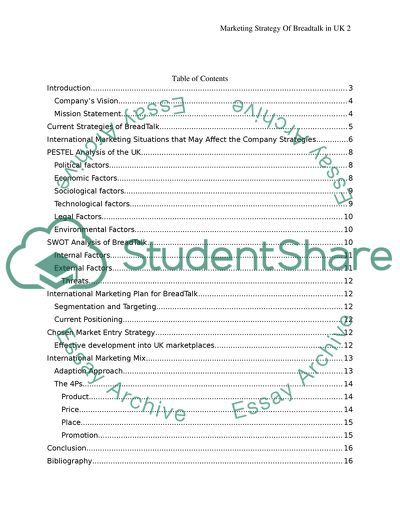Cite this document
(“Analytical report on the international marketing strategy of BreadTalk Term Paper”, n.d.)
Analytical report on the international marketing strategy of BreadTalk Term Paper. Retrieved from https://studentshare.org/marketing/1672431-analytical-report-on-the-international-marketing-strategy-of-breadtalk-in-singapore-entering-united-kingdom
Analytical report on the international marketing strategy of BreadTalk Term Paper. Retrieved from https://studentshare.org/marketing/1672431-analytical-report-on-the-international-marketing-strategy-of-breadtalk-in-singapore-entering-united-kingdom
(Analytical Report on the International Marketing Strategy of BreadTalk Term Paper)
Analytical Report on the International Marketing Strategy of BreadTalk Term Paper. https://studentshare.org/marketing/1672431-analytical-report-on-the-international-marketing-strategy-of-breadtalk-in-singapore-entering-united-kingdom.
Analytical Report on the International Marketing Strategy of BreadTalk Term Paper. https://studentshare.org/marketing/1672431-analytical-report-on-the-international-marketing-strategy-of-breadtalk-in-singapore-entering-united-kingdom.
“Analytical Report on the International Marketing Strategy of BreadTalk Term Paper”, n.d. https://studentshare.org/marketing/1672431-analytical-report-on-the-international-marketing-strategy-of-breadtalk-in-singapore-entering-united-kingdom.


